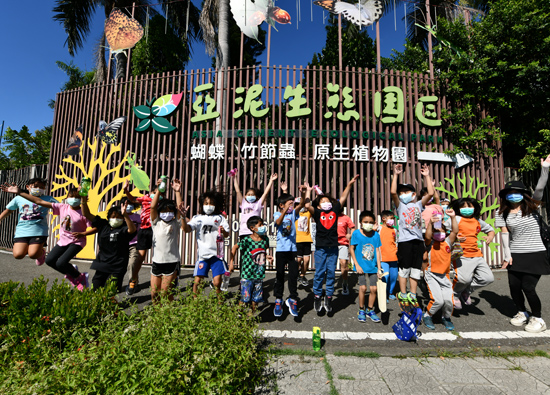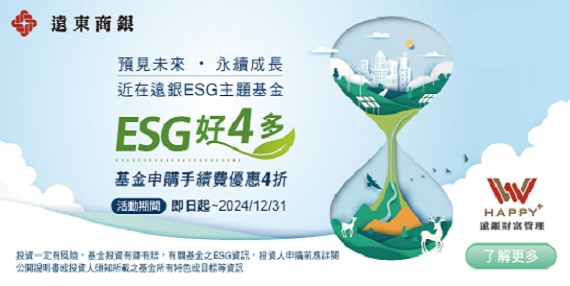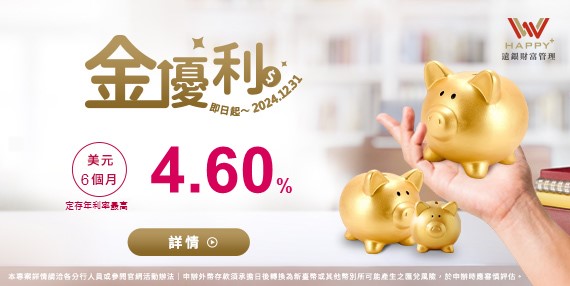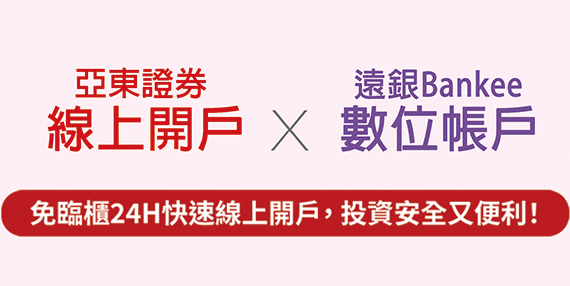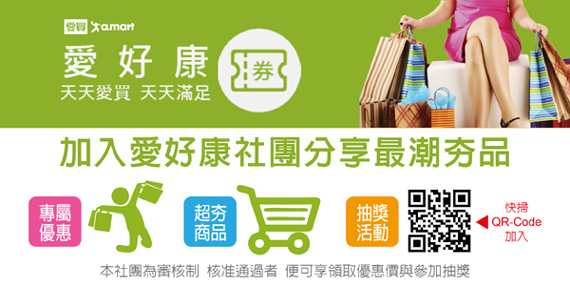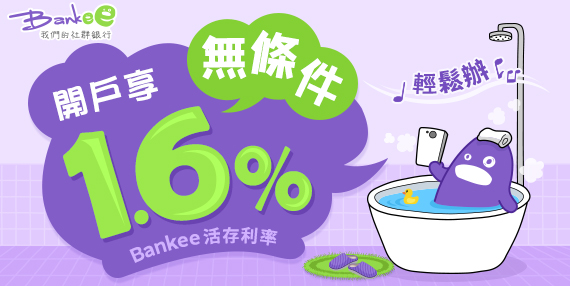05.2022 Cover Story
The role and Countermeasures of enterprises in sustainable financial ecosystem
KPMG anhou Sustainability Development Consultant / Lin Quanxing, Xie Mengzhe


In the past two years, the world economy has been hit hard by COVID-19 (covid-19), which is commonly called "black swan" by the financial community as a synonym for unexpected risks. Bank for International Settlements (BIS) uses Green Swan to describe that climate change will have a serious impact on the global financial system like a black swan. The chain reaction of climate disasters will lead to unpredictable environmental, economic and social unrest, and is likely to pose a direct threat to human survival. The rising awareness of green consumption will affect the reputation of high carbon emission enterprises, the government levy energy tax and carbon tax, increase the operating cost, push through the old and bring forth new low-carbon technologies and products, impact the brand competitiveness, and extreme climate events will lead to high maintenance costs, shortage of raw material supply, interruption of logistics transportation, etc. these effects are likely to occur in the future, so it is urgent to take action.
The root cause of climate change is excessive carbon emissions due to excessive economic growth and rapid social development based on fossil fuels. The solution needs to be considered from the macro level of the financial system. The roles of investors, accountants and enterprise stakeholders have interactive influence and cooperation to drive a more sustainable financial ecosystem: investors according to ESG (environmental protection) Social responsibility and governance trends and issues, adjust investment strategies and actively communicate with investment targets; Accountants play an impartial third-party role to ensure the credibility of non-financial information; In response to the requirements of stakeholders, enterprises are facing more changes and challenges by examining internal sustainable actions with high standards.
Investment strategy integration is included in ESG topics, and enterprises will get more resources
In an era when non-financial factors such as climate change are enough to cause huge asset losses, investment decision-making can no longer be limited to financial performance, but to incorporate key ESG issues into the decision-making process. The most representative approach can converge into two directions. One is to set the screening or exclusion threshold of ESG based on the consideration of risk avoidance; The second is to view ESG as a potential investment and business opportunity.
For actively excluding industries or objects with negative image, take Citi group as an example. Recognizing that the world is facing a major sustainable threat, Citigroup continues to update and expand its "environmental and social policy framework", stipulates that the group's funds shall not invest in the subject or industries that have a severe impact on the environment and human rights, and promises not to undertake specific types of fossil fuel related project financing business and large-scale hydropower plant projects with a power generation capacity of more than 25MW.
On the other hand, investors regard ESG as a representative case of potential business opportunities, set up a sub brand of robecosam focusing on sustainable and influence investment for asset management organization Robeco, and provide a series of sustainable theme funds, including: sustainable water resources, sustainable healthy life, connecting one or more United Nations Sustainable Development Goals (sdgs) related issues, Build a mutually beneficial bridge between sustainable enterprises and responsible investors, so that enterprises have more resources to invest in sustainability development.
Optimize ESG information management and reliability to win the trust of investors
The decision-making of the above-mentioned institutional investors must rely on more transparent ESG information disclosure. Although the sustainability report has become the mainstream channel for non-financial information disclosure of enterprises, the capital market still expects enterprises to check the quality, reliability and integrity of ESG information disclosure through accountants. During the period of cop26, the international financial reporting standards Foundation (IFRS) officially established the international sustainability Standards Board (issb). It is expected to integrate multiple ESG disclosure structures before June 2022, so that sustainable information disclosure will move towards global standardization and be in line with financial reports. In addition to completing information disclosure according to the disclosure framework in the future, enterprises can further think about ESG problems that may be faced when assets grow in the future, and rely on the expertise of accountants, Evaluate how to incorporate ESG issues into the current management accounting framework, find out the deficiencies in the ESG data collection process and what needs to be improved, and further provide unique insights into ESG data.
Enterprise sustainable governance mechanism is a necessary gear
In addition to institutional investors, brands, consumers and other multiple stakeholders have also changed from only focusing on financial performance to taking ESG performance as an important indicator to measure enterprise performance, judge trust and business decision-making. Faced with a wide range of ESG requirements from different stakeholders, it has become normal to establish a sustainable department and a cross departmental sustainable governance organization to comprehensively manage and respond to sustainable issues. Its main responsibilities include: being familiar with its own sustainable status and sustainable trends at home and abroad, truly mastering the sustainable issues concerned by stakeholders, strengthening the communication of non-financial information, carrying out positive interaction on specific issues or stakeholders Feed back the gap between communication results and relevant expectations to the company's senior management, or develop response countermeasures through the sustainable governance mechanism of inter ministerial meetings for rolling management.
Common enterprise ESG performance evaluation
What can best reflect the sustainable performance of enterprises is the results of ESG evaluation of institutional investors. The evaluation and sustainability index often participated in by the Taiwan market are as follows:
“Dow Jones Sustainability Index (DJSI)” Dow Jones Sustainability Index, DJSI
DJSI is the world's first enterprise sustainability index, which points out the risks and opportunities of enterprise operation by comprehensively examining nearly 100 sub items of the three major aspects of economy, environment and society. DJSI invites 2500 global enterprises every year to conduct a questionnaire survey into 60 industries without cross industry comparison. Among the sustainability index categories in different regions, the top 10 ~ 20% enterprises are selected and included in DJSI sustainable stock. A total of 30 enterprises in Taiwan were selected in 2021, including 23 in the world index and 26 in the emerging market index. It is the country with the largest number of selected stocks in the emerging market index. Far EasTone telecommunications has been selected as the emerging market index consistent stock since 2016, and has been further selected as the world index consistent stock for three consecutive years since 2019, ranking fourth in the global industry in terms of sustainable performance.
FTSE sustainable investment indexes
FTSE is divided into nine categories according to different regions and types. The evaluation framework includes 14 topics and more than 300 indicators. It is reviewed every six months. Only publicly available information is used for ESG evaluation, from 0 to 5, and 5 is the best. Since 2017, Taiwan Index Company and FTSE Russel have jointly compiled and released the "FTSE4Good tip Taiwan ESG index" (Taiwan sustainability index). It is one of the FTSE4Good index series. It is the first investment sustainability index combined with ESG in China. Its sampling matrix is the enterprises listed in Taiwan Stock Exchange Corporation in the FTSE4Good emerging index consistent stock, Far Eastern Group's enterprises listed as constructive stock include far EasTone telecommunications, Far Eastern Group, U-Ming marine transport, Asia Cement Corporation and Far Eastern International Bank.
MSCI ESG index
MSCI carries out ESG rating for more than 2800 enterprises in the all country world index (acwi) every year, which is subdivided into 10 themes based on the three main axis structure of E, s and G, and then divided into 37 key indicators. The data source of analysis is mainly public information, and the rating is evaluated according to the degree of enterprise exposure to ESG risk and the effectiveness of risk management, ranging from the highest AAA to the lowest CCC. If the ESG rating score of a Taiwan enterprise is above BB, it is not in the tobacco, alcohol, gambling, nuclear energy or nuclear weapons industries, and the score of E, s and G disputes is not more than 3 points, it can be included in the MSCI Taiwan ESG leaders index. Far eastern group enterprises with a rating of BB or above include: far EasTone telecommunications, Far Eastern Group, Oriental Union Chemical Corporation and Far Eastern International Bank.
Key sustainability issues and challenges facing enterprises in 2022
Whether the EU's carbon border adjustment mechanism or countries' net zero commitment, the pressure of international carbon reduction has risen to the level of economy and trade. In October 2021, Taiwan put forward the draft of the "climate change response law", which incorporated the 2050 net zero emission target into the bill. It is expected to launch the Taiwan net zero strategy and path in the first half of this year. The Financial Supervision Commission began to require listed OTC enterprises to fully disclose the greenhouse gas emissions in the scope of consolidated financial statements. Enterprises must start a complete inventory of carbon emissions, understand carbon rights and transactions, and how to use internal carbon pricing Invest in energy storage devices or innovative business models to move towards low-carbon transformation and ensure competitiveness. In the 2022 trend report, MSCI, the world's largest index company, pointed out that the net zero emission of international customers must be realized by all supply chain manufacturers. As a part of the global supply chain, Taiwan can not avoid the global net zero game. If it can layout recycled economy, low-carbon technology, carbon capture technology and other fields as soon as possible, it is expected to become a supplier of low-carbon solutions in the world. The international "science based reduction target initiative" (SBTI) provides a unified path and standard with scientific methods, third-party certification and twice the result with half the effort when enterprises implement the net zero target. At present, it has been responded by 2257 enterprises worldwide (31 Enterprises in Taiwan, including Asia Cement Corporation and far EasTone Telecommunications).
The global promotion of green economy, energy conservation and carbon reduction, and the internalization of external costs of enterprises have led to the new state of "green inflation". The shortage of materials, work, water and cabinets, as well as the fear of new power shortages this year, have tested the ESG risk management and resilience to withstand the impact of enterprises. In the future, the commitment of enterprises will no longer be limited to climate impact, but will be extended to the impact assessment of natural finance. The working group on disclosure of natural related financial information (tnfd) composed of 24 countries, 74 global ecological circles, financial circles, enterprises and government regulators, including KPMG, is discussing and is expected to propose a framework and guidelines by the end of 2022 at the earliest, urging the protection of natural capital. In addition, both the latest general guidelines issued by the Global Reporting Initiative (GRI) and the international sustainability assessment have added and improved the disclosure of human rights and due diligence. Taiwan enterprises must include this issue in sustainability management and respond to relevant risks in advance.
Source:
In the 81st issue of the first quarter of 2022, the Futures Commission quarterly, how can enterprises, investors, accountants and other roles promote sustainable transformation with the financial industry, 2022, taken from: https://www.futures.org.tw/publication/quarterly
World magazine, have you kept up with the top ten ESG trends of green inflation and green Unicorn 2022? 2022, retrieved from: https://csr.cw.com.tw/article/42392
The Green Swan – central banking and financial stability in the age of climate change, bank for International Settlements, 2020, taken from: https://www.bis.org/publ/othp31.pdf
Investors view division more favorably post-cop26, finds Nigeria one survey, 2021, retrieved from: https://www.irmagazine.com/buy-side/investors-view-divestment-more-favorably-post-cop26-finds-ninety-one-survey
Environmental and Social Policy Framework, Citi, 2019.
Responsible Investment at Zurich, Zurich Insurance Group, 2019.
Environmental, social and Governance (ESG) investment opportunities in Taiwan, UOB asset management, 2021, taken from: https://www.uobam.com.sg/uobam/insights/esg-opps-in-tw.page
#
The root cause of climate change is excessive carbon emissions due to excessive economic growth and rapid social development based on fossil fuels. The solution needs to be considered from the macro level of the financial system. The roles of investors, accountants and enterprise stakeholders have interactive influence and cooperation to drive a more sustainable financial ecosystem: investors according to ESG (environmental protection) Social responsibility and governance trends and issues, adjust investment strategies and actively communicate with investment targets; Accountants play an impartial third-party role to ensure the credibility of non-financial information; In response to the requirements of stakeholders, enterprises are facing more changes and challenges by examining internal sustainable actions with high standards.
Investment strategy integration is included in ESG topics, and enterprises will get more resources
In an era when non-financial factors such as climate change are enough to cause huge asset losses, investment decision-making can no longer be limited to financial performance, but to incorporate key ESG issues into the decision-making process. The most representative approach can converge into two directions. One is to set the screening or exclusion threshold of ESG based on the consideration of risk avoidance; The second is to view ESG as a potential investment and business opportunity.
For actively excluding industries or objects with negative image, take Citi group as an example. Recognizing that the world is facing a major sustainable threat, Citigroup continues to update and expand its "environmental and social policy framework", stipulates that the group's funds shall not invest in the subject or industries that have a severe impact on the environment and human rights, and promises not to undertake specific types of fossil fuel related project financing business and large-scale hydropower plant projects with a power generation capacity of more than 25MW.
On the other hand, investors regard ESG as a representative case of potential business opportunities, set up a sub brand of robecosam focusing on sustainable and influence investment for asset management organization Robeco, and provide a series of sustainable theme funds, including: sustainable water resources, sustainable healthy life, connecting one or more United Nations Sustainable Development Goals (sdgs) related issues, Build a mutually beneficial bridge between sustainable enterprises and responsible investors, so that enterprises have more resources to invest in sustainability development.
Optimize ESG information management and reliability to win the trust of investors
The decision-making of the above-mentioned institutional investors must rely on more transparent ESG information disclosure. Although the sustainability report has become the mainstream channel for non-financial information disclosure of enterprises, the capital market still expects enterprises to check the quality, reliability and integrity of ESG information disclosure through accountants. During the period of cop26, the international financial reporting standards Foundation (IFRS) officially established the international sustainability Standards Board (issb). It is expected to integrate multiple ESG disclosure structures before June 2022, so that sustainable information disclosure will move towards global standardization and be in line with financial reports. In addition to completing information disclosure according to the disclosure framework in the future, enterprises can further think about ESG problems that may be faced when assets grow in the future, and rely on the expertise of accountants, Evaluate how to incorporate ESG issues into the current management accounting framework, find out the deficiencies in the ESG data collection process and what needs to be improved, and further provide unique insights into ESG data.
Enterprise sustainable governance mechanism is a necessary gear
In addition to institutional investors, brands, consumers and other multiple stakeholders have also changed from only focusing on financial performance to taking ESG performance as an important indicator to measure enterprise performance, judge trust and business decision-making. Faced with a wide range of ESG requirements from different stakeholders, it has become normal to establish a sustainable department and a cross departmental sustainable governance organization to comprehensively manage and respond to sustainable issues. Its main responsibilities include: being familiar with its own sustainable status and sustainable trends at home and abroad, truly mastering the sustainable issues concerned by stakeholders, strengthening the communication of non-financial information, carrying out positive interaction on specific issues or stakeholders Feed back the gap between communication results and relevant expectations to the company's senior management, or develop response countermeasures through the sustainable governance mechanism of inter ministerial meetings for rolling management.
Common enterprise ESG performance evaluation
What can best reflect the sustainable performance of enterprises is the results of ESG evaluation of institutional investors. The evaluation and sustainability index often participated in by the Taiwan market are as follows:
“Dow Jones Sustainability Index (DJSI)” Dow Jones Sustainability Index, DJSI
DJSI is the world's first enterprise sustainability index, which points out the risks and opportunities of enterprise operation by comprehensively examining nearly 100 sub items of the three major aspects of economy, environment and society. DJSI invites 2500 global enterprises every year to conduct a questionnaire survey into 60 industries without cross industry comparison. Among the sustainability index categories in different regions, the top 10 ~ 20% enterprises are selected and included in DJSI sustainable stock. A total of 30 enterprises in Taiwan were selected in 2021, including 23 in the world index and 26 in the emerging market index. It is the country with the largest number of selected stocks in the emerging market index. Far EasTone telecommunications has been selected as the emerging market index consistent stock since 2016, and has been further selected as the world index consistent stock for three consecutive years since 2019, ranking fourth in the global industry in terms of sustainable performance.
FTSE sustainable investment indexes
FTSE is divided into nine categories according to different regions and types. The evaluation framework includes 14 topics and more than 300 indicators. It is reviewed every six months. Only publicly available information is used for ESG evaluation, from 0 to 5, and 5 is the best. Since 2017, Taiwan Index Company and FTSE Russel have jointly compiled and released the "FTSE4Good tip Taiwan ESG index" (Taiwan sustainability index). It is one of the FTSE4Good index series. It is the first investment sustainability index combined with ESG in China. Its sampling matrix is the enterprises listed in Taiwan Stock Exchange Corporation in the FTSE4Good emerging index consistent stock, Far Eastern Group's enterprises listed as constructive stock include far EasTone telecommunications, Far Eastern Group, U-Ming marine transport, Asia Cement Corporation and Far Eastern International Bank.
MSCI ESG index
MSCI carries out ESG rating for more than 2800 enterprises in the all country world index (acwi) every year, which is subdivided into 10 themes based on the three main axis structure of E, s and G, and then divided into 37 key indicators. The data source of analysis is mainly public information, and the rating is evaluated according to the degree of enterprise exposure to ESG risk and the effectiveness of risk management, ranging from the highest AAA to the lowest CCC. If the ESG rating score of a Taiwan enterprise is above BB, it is not in the tobacco, alcohol, gambling, nuclear energy or nuclear weapons industries, and the score of E, s and G disputes is not more than 3 points, it can be included in the MSCI Taiwan ESG leaders index. Far eastern group enterprises with a rating of BB or above include: far EasTone telecommunications, Far Eastern Group, Oriental Union Chemical Corporation and Far Eastern International Bank.
Key sustainability issues and challenges facing enterprises in 2022
Whether the EU's carbon border adjustment mechanism or countries' net zero commitment, the pressure of international carbon reduction has risen to the level of economy and trade. In October 2021, Taiwan put forward the draft of the "climate change response law", which incorporated the 2050 net zero emission target into the bill. It is expected to launch the Taiwan net zero strategy and path in the first half of this year. The Financial Supervision Commission began to require listed OTC enterprises to fully disclose the greenhouse gas emissions in the scope of consolidated financial statements. Enterprises must start a complete inventory of carbon emissions, understand carbon rights and transactions, and how to use internal carbon pricing Invest in energy storage devices or innovative business models to move towards low-carbon transformation and ensure competitiveness. In the 2022 trend report, MSCI, the world's largest index company, pointed out that the net zero emission of international customers must be realized by all supply chain manufacturers. As a part of the global supply chain, Taiwan can not avoid the global net zero game. If it can layout recycled economy, low-carbon technology, carbon capture technology and other fields as soon as possible, it is expected to become a supplier of low-carbon solutions in the world. The international "science based reduction target initiative" (SBTI) provides a unified path and standard with scientific methods, third-party certification and twice the result with half the effort when enterprises implement the net zero target. At present, it has been responded by 2257 enterprises worldwide (31 Enterprises in Taiwan, including Asia Cement Corporation and far EasTone Telecommunications).
The global promotion of green economy, energy conservation and carbon reduction, and the internalization of external costs of enterprises have led to the new state of "green inflation". The shortage of materials, work, water and cabinets, as well as the fear of new power shortages this year, have tested the ESG risk management and resilience to withstand the impact of enterprises. In the future, the commitment of enterprises will no longer be limited to climate impact, but will be extended to the impact assessment of natural finance. The working group on disclosure of natural related financial information (tnfd) composed of 24 countries, 74 global ecological circles, financial circles, enterprises and government regulators, including KPMG, is discussing and is expected to propose a framework and guidelines by the end of 2022 at the earliest, urging the protection of natural capital. In addition, both the latest general guidelines issued by the Global Reporting Initiative (GRI) and the international sustainability assessment have added and improved the disclosure of human rights and due diligence. Taiwan enterprises must include this issue in sustainability management and respond to relevant risks in advance.
Source:
In the 81st issue of the first quarter of 2022, the Futures Commission quarterly, how can enterprises, investors, accountants and other roles promote sustainable transformation with the financial industry, 2022, taken from: https://www.futures.org.tw/publication/quarterly
World magazine, have you kept up with the top ten ESG trends of green inflation and green Unicorn 2022? 2022, retrieved from: https://csr.cw.com.tw/article/42392
The Green Swan – central banking and financial stability in the age of climate change, bank for International Settlements, 2020, taken from: https://www.bis.org/publ/othp31.pdf
Investors view division more favorably post-cop26, finds Nigeria one survey, 2021, retrieved from: https://www.irmagazine.com/buy-side/investors-view-divestment-more-favorably-post-cop26-finds-ninety-one-survey
Environmental and Social Policy Framework, Citi, 2019.
Responsible Investment at Zurich, Zurich Insurance Group, 2019.
Environmental, social and Governance (ESG) investment opportunities in Taiwan, UOB asset management, 2021, taken from: https://www.uobam.com.sg/uobam/insights/esg-opps-in-tw.page
#



